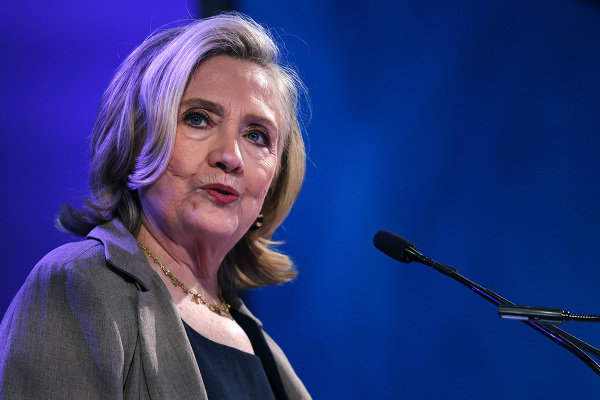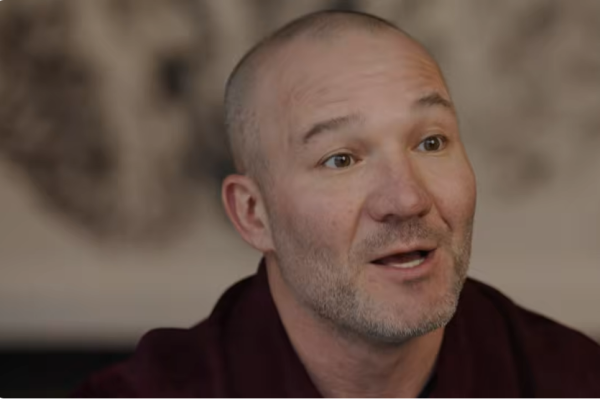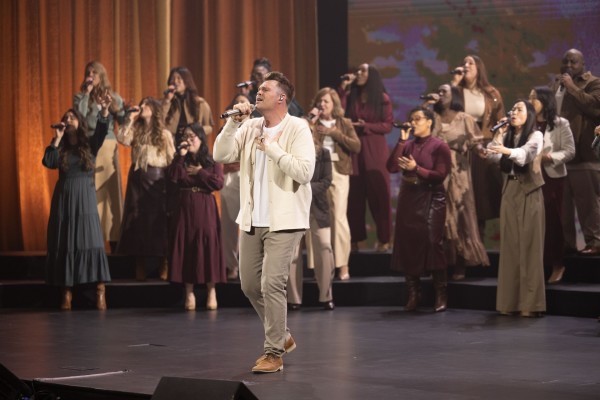How best to define evangelical? There are ‘many evangelicalisms,’ historian says

There are "many evangelicalisms" and people should be wary about trying to attach a single definition to the religious movement, a history professor says.
Kristin Kobes Du Mez, associate professor of History and Gender Studies at Calvin College, presented a paper on Saturday titled “Race, Gender, and the 81 Percent: Defining Evangelicalism and What's at Stake” at an American Historical Association conference in Chicago, Illinois.
The ”81 percent” in the title refers to the much touted yet highly disputed 2016 presidential election exit polling data that claimed 81 percent of evangelicals voted for Donald Trump.
Some, including Joe Carter and Justin Taylor at The Gospel Coalition, and Napp Nazworth at The Christian Post, argued that the polling data was problematic on multiple fronts. The 81 percent, they point out, only includes whites, doesn't include people who didn't vote, and is based upon self-identification, rather than beliefs or participation in an evangelical church.
Further illustrating the problem, a 2017 LifeWay poll found that less than half of those Americans who identify as evangelical hold evangelical beliefs, and one-third of Americans who hold evangelical views don't identify as evangelical.
Du Mez explained in her presentation the modern debate and different perspectives over how to define the term “evangelical,” including whether to accept self-identification or to base it on theological views.
She also noted that for many, including some pollsters, evangelicalism is a term meant to describe some white Christians, while others view it as applicable to all races.
“Is evangelicalism a theological category, a cultural movement, a white religious brand, a diverse global movement? What if the answer is ‘all of the above’?” stated Du Mez.
Du Mez cited Benedict Anderson’s “imagined communities” approach to nationalism, defining a nation as the socially-constructed product of a collective imagination as inherently limited and sovereign.
“There are, in fact, many evangelicalisms, and each is imagined with a different center and different boundaries,” said Du Mez.
“If we consider evangelicalism an imagined religious community, imagined as inherently limited, bounded with insiders and outsiders, we must pay careful attention to questions of power.”
The issue is not so much which definition of evangelicalism is correct, but rather “which imaginings have more power to shape other people’s imaginings," she argued.
“When LifeWay Christian Books decides you are no longer an evangelical, it matters,” she continued. “When the evangelical left claims the mantle of evangelicalism to call for an end to the culture wars, it matters rhetorically and beyond that, I have my doubts.”
Scholars of evangelicalism should also be wary of their own biases on the issue, warned Du Mez, saying that they should “examine our own positionality.”
“How have scholars imagined evangelicalism and to what end? How have scholarly definitions opened up some questions and topics for exploration and closed down others? Which scholarly imaginings have wielded power in the academy and why?” she said.
“All this is especially important to consider, since so many scholars of evangelicalism have a personal connection to evangelicalism, as either evangelicals themselves or as ‘exvangelicals.’ Much of the scholarship on evangelicalism, in other words, has been generated by scholars who have a dog in the fight.”
Du Mez presented her paper at the 133rd annual meeting of the American Historical Association, held Jan. 3-6 in Chicago, Illinois.
She was part of a Saturday panel at the annual meeting titled “Who Is Evangelical? Confronting Race in American Christianity.”
In addition to Du Mez, other panel members included Malcolm Foley, a doctoral candidate at the Department of Religion at Baylor University, and Jemar Tisby, author and Ph.D. candidate in United States history at the University of Mississippi.
Tisby's paper was titled "Are Black Christians Evangelical?" He argued that whether or not black evangelicals can be called evangelical will, and should, remain ambiguous, but should always include the modifier "black evangelical" because the issue of race will be important as well.
Tisby is the president of The Witness, formerly called the Reformed African American Network, and has personally struggled with whether to accept the label of “evangelical.”
“I always felt like an outsider — because of my race, my culture and my politics,” explained Tisby on being in evangelical culture, as reported by the website factsandtrends.net in February of last year. “I found I could not fully be myself.”
Similar to Du Mez's "many evangelicalisms" argument, a Nov. 1 report by the Center for Religion and Civic Culture at the University of Southern California, titled "The Varieties of American Evangelicalism," argued there are five types of evangelicals: Trump-vangelicals, Neo-fundamentalist evangelicals, iVangelicals, Kingdom Christians, and Peace and Justice evangelicals.
The report states, "[D]iscrete groups can be found within evangelicalism that, while sharing the same basic theology, differ significantly in how they understand politics and social engagement."
The National Association of Evangelicals, which represents 45,000 churches across 40 different denominations, released a statement last May stressing the point that the term "evangelical" should be viewed in a spiritual, not political, lens.
"Because there are millions of us in the United States and far more of us in other countries around the world, there are subgroups identified by where we live, how we vote, the level of our education or even our local cultural expressions," read the NAE statement.
"Each has distinctive beliefs and practices that may be unfamiliar or uncomfortable to one another. Sometimes these subgroups or their leaders are identified as typical of all evangelicals even though there is no consensus, connection or communication between them."
Last April, a group of about 50 evangelical leaders and scholars met at Wheaton College in Illinois to discuss the state of evangelicalism during the Trump era.
The meeting was attended by prominent leaders, including popular pastor and author Tim Keller and New York City megachurch pastor A.R. Bernard. Also included in the meeting was World Relief's Jenny Yang, vice president of advocacy and policy at the humanitarian arm of the NAE.
"I think what you had is you had people in the room who voted for Trump. I think you had people in the room who either didn't cast a vote or voted for a third party candidate and you had some people in the room who voted Democrat," meeting participant Darrell Bock from Dallas Theological Seminary told The Christian Post last year. "In that sense it was a big tent meeting."
David Bebbington, historian at Baylor University, had developed a widely-used definition for what constituted an evangelical, which fell under four fundamentals, as explained in a recent column published by The Christian Post:
“Conversionism: an emphasis on the importance of personal conversion.
Biblicism: a high regard for the Bible and its unique authority in conveying spiritual truth.
Crucicentrism: an emphasis on the centrality of the atoning work of Christ.
Activism: a conviction that the Gospel should be lived out through visible and socially transformative actions.”
However, since the rise of Trump, many have called into question what defines an evangelical, with figures including World Evangelical Alliance General Secretary Bishop Efraim Tendero recently arguing that the term needed to be “reclaimed” after being too politicized in the U.S.
"That's unfortunate that in the United States in particular that the word evangelical and the evangelical movement is identified more for political advocacy rather than the orthodoxy of their faith and the demonstration and proclamation of the Gospel," said Tendero in an interview with the United Kingdom Christian publication Premier last year.
“Let's continue upholding the word evangelical true to its meaning that we care about the Gospel and when we talk about the Gospel, it is not just how we say the Gospel but how we live out the truth and values of the Gospel.”
Scott Sauls, senior pastor of Christ Presbyterian Church in Nashville, Tennessee, made a similar point in a Sunday CP interview.
“By following the whole Christ the whole time, we're going to find ourselves at odds with both progressivism and conservatism, politically. I think that there are a lot of people who identify as Christian who just don't see it that way. As a result, we've gotten off message and our Christianity is less biblical and more political in many respects," he said.





















